
Find Help
More Items From Ergsy search
-

What is Gonorrhoea?
Relevance: 100%
-

Is there a vaccine for gonorrhoea?
Relevance: 100%
-
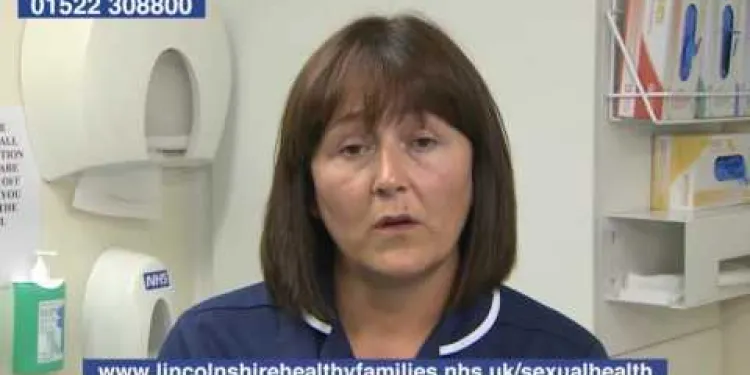
The symptoms of gonorrhoea
Relevance: 99%
-

How is gonorrhoea transmitted?
Relevance: 96%
-
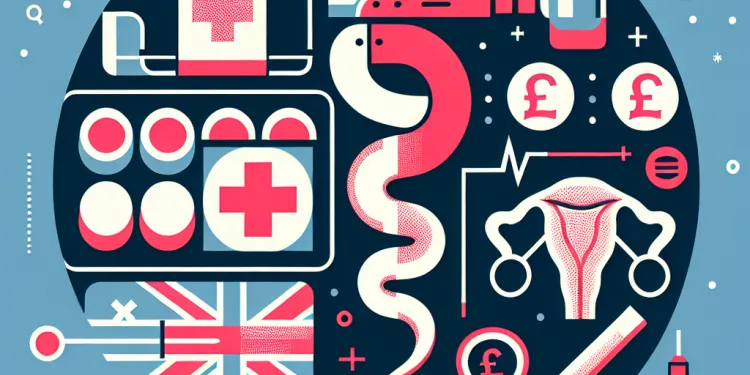
Can gonorrhoea be asymptomatic?
Relevance: 96%
-

Can gonorrhoea be prevented?
Relevance: 95%
-

How is gonorrhoea diagnosed?
Relevance: 95%
-

Are there any long-term effects of gonorrhoea?
Relevance: 92%
-
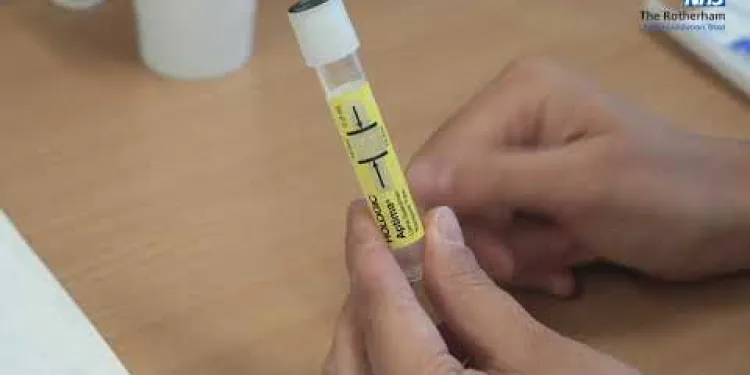
Urine test for Gonorrhoea and Chlamydia
Relevance: 89%
-
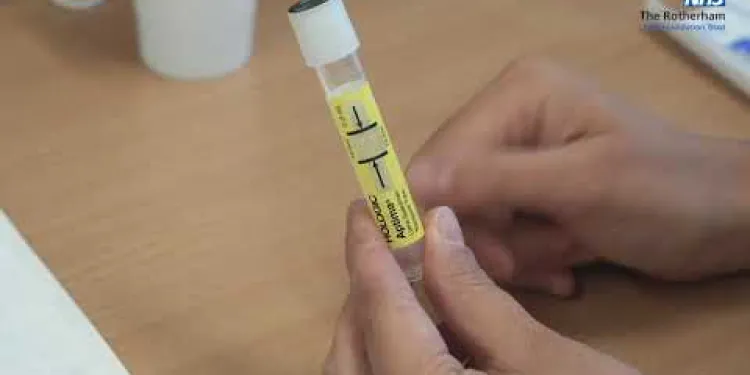
Urine test for Gonorrhoea and Chlamydia
Relevance: 88%
-

Understanding Your Sexual Health - Gonorrhoea
Relevance: 88%
-

What antibiotics are used to treat gonorrhoea?
Relevance: 88%
-
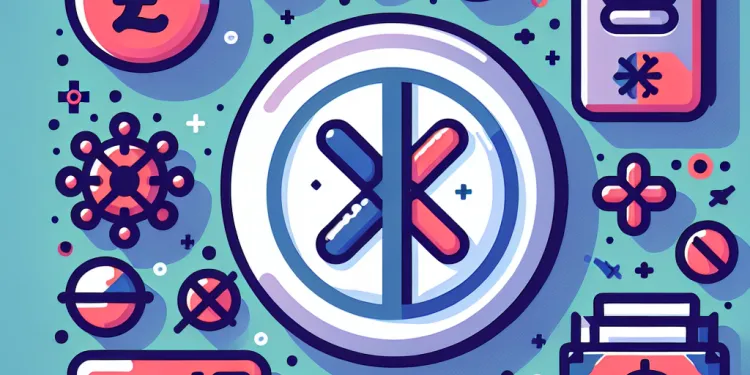
Why is antibiotic resistance a concern with gonorrhoea?
Relevance: 87%
-

Pharyngeal swab for Gonorrhoea and Chlamydia
Relevance: 87%
-

What should one do if they suspect they have gonorrhoea?
Relevance: 86%
-
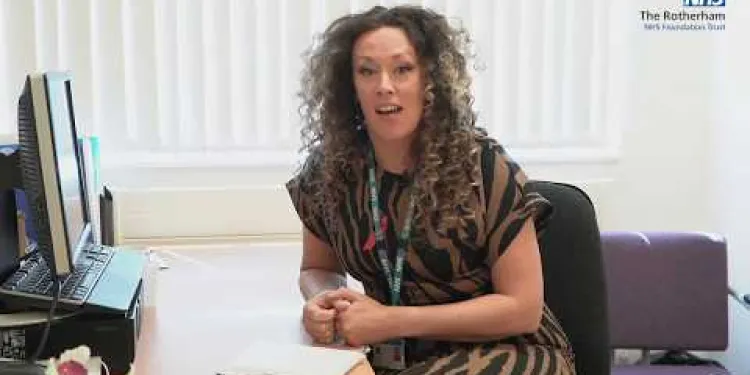
Vaginal Swab test for Gonorrhoea and Chlamydia
Relevance: 84%
-
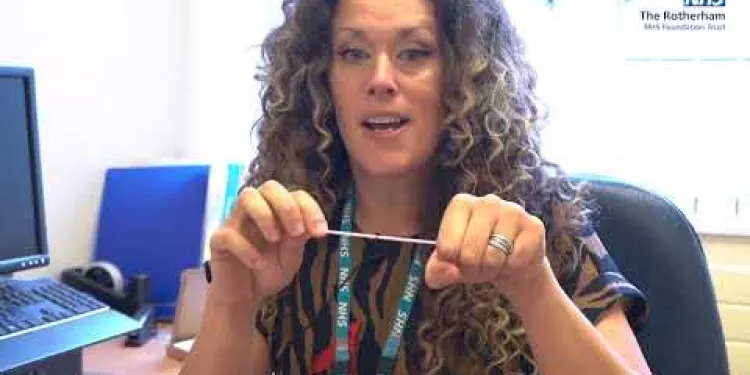
Rectal swab test for Gonorrhoea and Chlamydia
Relevance: 83%
-

Can gonorrhoea infect areas other than the genital organs?
Relevance: 83%
-

Can you still get gonorrhoea after treatment?
Relevance: 83%
-

How often should one get tested for gonorrhoea?
Relevance: 82%
-
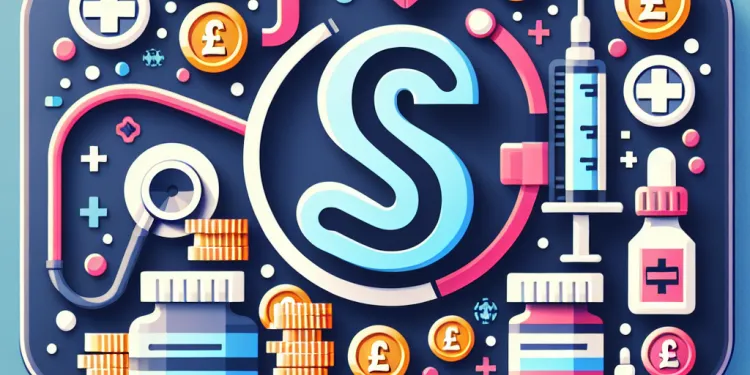
Is gonorrhoea treatable?
Relevance: 71%
-

Can gonorrhoea be spread through casual contact?
Relevance: 58%
-

Can gonorrhoea cause complications if left untreated?
Relevance: 58%
-

What are the symptoms of gonorrhoea?
Relevance: 42%
-

What is 'the clap'?
Relevance: 36%
-

Can gonorrhoea be passed from mother to child?
Relevance: 33%
-

Sexually transmitted infections STIs
Relevance: 26%
-

NHS STI (Sexually Transmitted Infections) Information Video
Relevance: 24%
-

Understanding Your Sexual Health - Pelvic Inflammatory Disease
Relevance: 22%
-

BSL Pelvic inflammatory disease (PID)
Relevance: 21%
-
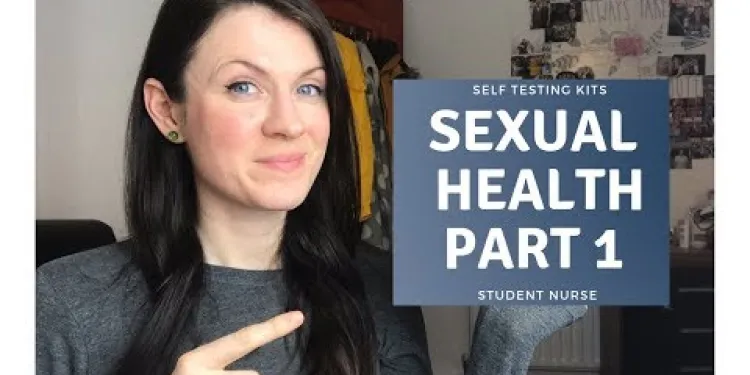
Let's Talk Sexual Health - Home Self Testing Kits
Relevance: 20%
-

Let's Talk Sexual Health - Home Self Testing Kits
Relevance: 16%
-

Female infertility explained
Relevance: 13%
-

Can using condoms fully protect against HPV?
Relevance: 7%
-
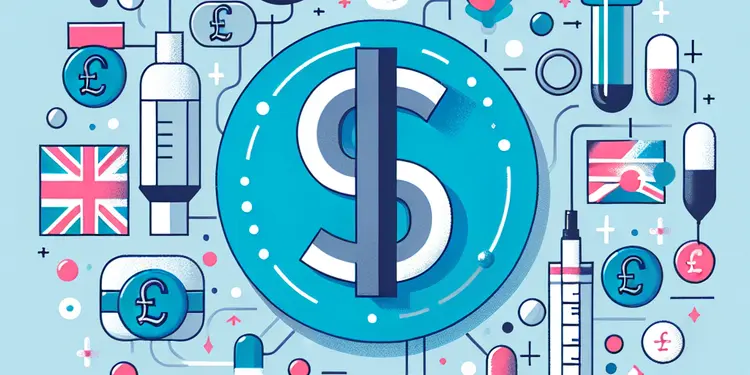
What is antibiotic resistance?
Relevance: 7%
-

Why is antibiotic resistance a problem?
Relevance: 6%
Introduction to Gonorrhoea
Gonorrhoea is a sexually transmitted infection (STI) caused by the bacterium Neisseria gonorrhoeae. It is a common infection that can affect both men and women, primarily impacting the genital tract, but also the mouth, throat, eyes, and rectum. This infection is most often spread through unprotected vaginal, oral, or anal sex with an infected partner.
Symptoms of Gonorrhoea
Gonorrhoea may not always present noticeable symptoms, particularly in women. When symptoms do occur, they typically appear within two to fourteen days after exposure. In men, symptoms can include a burning sensation when urinating, a white, yellow, or green discharge from the penis, and swollen or painful testicles. Women might experience increased vaginal discharge, painful urination, or bleeding between periods. If left untreated, gonorrhoea can lead to serious health problems.
Complications of Untreated Gonorrhoea
If gonorrhoea is not treated, it can cause significant health complications. In women, untreated gonorrhoea can lead to pelvic inflammatory disease (PID), which might result in chronic pelvic pain, infertility, or ectopic pregnancy. In men, it may lead to the painful condition of epididymitis, which can also result in infertility. Additionally, the infection can spread through the bloodstream and cause arthritis, heart valve damage, or meningitis if left untreated.
Diagnosis and Treatment
Diagnosing gonorrhoea typically involves a urine test or a swab of the affected area to detect the presence of the bacteria. In the UK, free testing and treatment for gonorrhoea are available through sexual health and genitourinary medicine (GUM) clinics, as well as some general practitioner (GP) surgeries. Treatment for gonorrhoea usually involves a course of antibiotics. Due to increasing antibiotic resistance, it is essential to complete the full course of prescribed medication, even if symptoms disappear.
Prevention Strategies
The most effective way to prevent gonorrhoea is by using condoms consistently and correctly during all forms of sexual activity. Regular STI screenings for sexually active individuals are recommended, as are open discussions with sexual partners about STI testing and prevention practices. Limiting the number of sexual partners and establishing mutually monogamous relationships can also reduce the risk of contracting gonorrhoea.
Conclusion
Gonorrhoea is a prevalent STI with potentially serious health implications if not treated promptly. By understanding the symptoms, seeking regular testing, and practising safe sex, individuals can protect themselves and their partners from this infection. Access to testing and treatment services in the UK facilitates early detection and effective management of gonorrhoea, minimizing its impact on public health.
Introduction to Gonorrhoea
Gonorrhoea is an illness you can get from having sex. It is caused by germs. Both men and women can get it. It can make you sick in places like your private parts, mouth, throat, eyes, and bottom. You can catch it by having sex without a condom.
Symptoms of Gonorrhoea
Sometimes, gonorrhoea does not make you feel sick right away. For some people, like women, the signs might be hard to see. If you do feel sick, it usually happens 2 to 14 days after you catch it. For men, it can hurt to pee, or there might be a white, yellow, or green liquid from the penis. The testicles might swell or hurt. For women, there might be more liquid down there, it might hurt to pee, or there might be bleeding when you are not having a period. If you do not get help, it can make you very sick.
Complications of Untreated Gonorrhoea
If you do not get the right medicine for gonorrhoea, it can make you very sick. For women, it can lead to a problem called PID, which can hurt a lot, make it hard to have babies, or cause pregnancy problems. For men, it can cause a painful problem called epididymitis and can make it hard to have babies. If the germs spread, they can also cause problems with joints, the heart, or the brain.
Diagnosis and Treatment
To find out if you have gonorrhoea, doctors can take a pee test or a swab from the sick area. In the UK, you can get free tests and medicine at special clinics or some doctors' offices. You will need antibiotics to get better. It's very important to take all the medicine, even if you start feeling better, because the germs are getting harder to kill with medicine.
Prevention Strategies
The best way to not get gonorrhoea is to use condoms every time you have sex. People who have sex should get tested often and talk to their partners about it. Having fewer partners and being with one person who only has sex with you can help you not get sick.
Conclusion
Gonorrhoea is an illness you can catch easily if you are not careful. It can make you very sick if you do not get help. By knowing the signs, getting tested often, and having safe sex, you can stay healthy. In the UK, it is easy to get tests and medicine, so you can get better before you get really sick.
Frequently Asked Questions
What is gonorrhoea?
Gonorrhoea is a sexually transmitted infection (STI) caused by the bacterium Neisseria gonorrhoeae.
How is gonorrhoea transmitted?
Gonorrhoea is commonly transmitted through unprotected vaginal, anal, or oral sex with someone who has the infection.
What are the symptoms of gonorrhoea?
Symptoms can include a burning sensation during urination, discharge from the penis or vagina, and, in women, pelvic pain. However, many people experience no symptoms.
Can gonorrhoea be asymptomatic?
Yes, gonorrhoea can be asymptomatic, especially in women, meaning they might not show symptoms but can still spread the infection.
How is gonorrhoea diagnosed?
Gonorrhoea is diagnosed through laboratory tests such as urine tests or swabs from the genital area.
Is gonorrhoea treatable?
Yes, gonorrhoea is treatable with antibiotics, but prompt treatment is crucial to prevent complications.
What antibiotics are used to treat gonorrhoea?
The treatment typically involves a dual antibiotic therapy, often ceftriaxone and azithromycin, but the regimen may change due to antibiotic resistance.
Can gonorrhoea cause complications if left untreated?
Yes, untreated gonorrhoea can cause serious health problems including infertility, pelvic inflammatory disease (PID) in women, and epididymitis in men.
Can gonorrhoea be prevented?
Gonorrhoea can be prevented by using condoms, having mutually monogamous relationships, and getting regular STI screenings.
Can gonorrhoea be spread through casual contact?
No, gonorrhoea cannot be spread through casual contact such as hugging, kissing, sharing utensils, or sitting on toilet seats.
Can gonorrhoea be passed from mother to child?
Yes, if a mother has gonorrhoea during childbirth, it can be passed to the baby, potentially causing serious health issues.
What is 'the clap'?
'The clap' is a colloquial term historically used for gonorrhoea.
How soon do symptoms appear after infection?
Symptoms typically appear within 2 to 14 days after exposure, but some people may never develop noticeable symptoms.
Why is antibiotic resistance a concern with gonorrhoea?
Neisseria gonorrhoeae has developed resistance to many antibiotics over time, making it more difficult to treat.
How often should one get tested for gonorrhoea?
The frequency of testing depends on individual risk factors, but sexually active individuals should discuss testing with their healthcare provider.
Can gonorrhoea infect areas other than the genital organs?
Yes, gonorrhoea can also affect the throat (from oral sex), rectum, and eyes.
What should one do if they suspect they have gonorrhoea?
Individuals should seek medical advice as soon as possible for testing and treatment if they suspect they have gonorrhoea.
Is there a vaccine for gonorrhoea?
No, currently there is no vaccine available for gonorrhoea.
Can you still get gonorrhoea after treatment?
Yes, successful treatment does not grant immunity, and reinfection is possible if exposed again.
Are there any long-term effects of gonorrhoea?
If untreated, gonorrhoea can lead to serious long-term health problems, including increased risk of acquiring other STIs such as HIV.
What is gonorrhoea?
Gonorrhoea is a kind of sickness. It is caused by germs. These germs can go from one person to another. It is important to see a doctor if you think you might have gonorrhoea. The doctor can help you feel better.
Gonorrhoea can make you feel pain or make it hurt when you go to the toilet. If you are worried, talk to a grown-up you trust.
To help you understand more, you can use pictures or videos. A grown-up can also help you read the words.
Gonorrhoea is an infection that you can get from sex. It is caused by tiny germs called Neisseria gonorrhoeae.
If reading is hard, you can try listening to audiobooks or use reading apps to help you.
How do you catch gonorrhoea?
Gonorrhoea is a germ that can make people sick. You can catch it from:
- Having sex without a condom.
- Touching someone's private parts who has the germ.
To help stay safe, you can:
- Use a condom during sex.
- Talk to a doctor or nurse for help and advice.
Remember, it is important to be careful and take care of your health.
You can get gonorrhoea if you have sex without a condom. This includes vaginal sex, anal sex, or oral sex. You can get it if the other person has gonorrhoea.
What signs show you have gonorrhoea?
Gonorrhoea is an illness. Here are some signs that you might have it:
- Pain when you pee.
- Feeling like you need to pee a lot.
- Thick yellow or green liquid from private parts.
- Pain in the lower tummy area.
If you think you have gonorrhoea, it is important to tell a doctor. They can give you medicine to help you get better.
Tools that might help:
- Ask someone you trust to read with you.
- Use a simple picture book about the body.
- Use an app that reads text out loud.
When you pee, it might burn or hurt. You could have stuff coming out of your private parts. Girls might feel pain in their belly. But some people might not feel anything at all.
Can you have gonorrhoea and not know it?
Yes, sometimes people with gonorrhoea do not feel sick or show any signs. This means they might have it and not know. It is important to see a doctor if you think you might have it, even if you feel fine.
Yes, you can have gonorrhoea and not feel sick. This happens a lot in women. Even if you don’t feel sick, you can still give it to other people.
How do doctors find out if you have gonorrhoea?
Doctors find out if someone has gonorrhoea using special tests. They may ask for a pee sample or use a cotton swab to take a small bit from private parts.
Can doctors cure gonorrhoea?
Doctors can help you get better from gonorrhoea. You need medicine from a doctor. The medicine kills the bacteria that make you sick.
It is important to see a doctor and follow their advice. Always take the full course of medicine even if you feel better before you finish it.
If you have questions or need help understanding, ask a friend, family member, or healthcare worker for support.
Yes, doctors can give medicine to get rid of gonorrhoea. It's important to see a doctor quickly. This stops more problems from happening.
What medicine helps with gonorrhoea?
The treatment usually uses two medicines called antibiotics. These are often called ceftriaxone and azithromycin. Sometimes doctors might use different antibiotics if the germs become too strong for the usual ones.
Can gonorrhoea make you sick if you don't see a doctor?
If you have gonorrhoea and do not go to the doctor, it can make you very sick.
Here is what can help:
- Visit a doctor or nurse.
- Take medicine the doctor gives you.
- Ask questions if you are unsure.
Yes, if you do not treat gonorrhea, it can cause big health problems. For girls and women, it can lead to trouble having babies later. It can also cause a bad belly problem called pelvic inflammatory disease (PID). For boys and men, it can lead to a problem called epididymitis, which is painful and can make it hard to have babies later too.
How can you stop getting gonorrhoea?
Gonorrhoea is an illness you can catch from someone else. Here are some simple ways to stay safe:
- Use a condom every time you have sex. It helps stop the germs.
- Talk to your doctor or nurse. They can give you good advice.
- Get checked regularly if you have new partners. This makes sure you stay healthy.
You can also ask someone you trust for help or use health websites to learn more.
You can stop gonorrhoea by using condoms. Have one partner who only has you as their partner too. Go to the doctor to check for infections often.
Can you get gonorrhoea from touching someone?
No, you can't get gonorrhea from hugging, kissing, sharing forks or spoons, or sitting on toilet seats.
Can a mother give gonorrhoea to her baby?
Yes, it can happen. Gonorrhoea is a germ that can pass from a mother to her baby during birth.
If you think this might happen, talk to a doctor. They can help and give advice.
Use pictures and videos to learn more. They can make things easier to understand.
If a mom has an illness called gonorrhoea when her baby is born, the baby can catch it. This can make the baby very sick.
What is 'the clap'?
'The clap' is a nickname for an illness. This illness is called gonorrhea. It is a type of infection.
If you or someone you know has questions, it’s good to talk to a doctor or nurse. They can help you understand more.
Using pictures or videos can help you learn more about this illness too. Make sure you get help from a grown-up if you want to learn more.
'The clap' is a simple name people used to use for the sickness called gonorrhea. Gonorrhea is a type of infection that can make people feel unwell.
When do signs of being sick start to show up?
Signs of feeling sick usually show up 2 to 14 days after being near someone who is sick. But sometimes, people might not feel sick at all.
Why is antibiotic resistance a worry with gonorrhoea?
Gonorrhoea is an illness caused by germs. Usually, doctors use medicines called antibiotics to make people better.
Sometimes, the germs get stronger and the antibiotics do not work anymore. This is called antibiotic resistance.
If antibiotics do not work, people with gonorrhoea cannot get well easily. This makes it a big worry.
To help understand, you can use picture books or watch simple videos about health. Talking with a doctor or nurse can also help.
Neisseria gonorrhoeae is a type of germ that can make us sick. It has become harder to kill with medicine because it has changed over time.
To help understand better, you can use simple tools like picture cards or ask someone to explain it to you in an easy way.
How many times should you get tested for gonorrhoea?
It is good to get tested every time you have a new partner.
You should also get tested if you have any symptoms.
Regular check-ups are a good idea if you often have new partners.
Talk to your doctor or health clinic if you are not sure.
How often you need a test depends on your personal health needs. If you are having sex, it's a good idea to talk to your doctor about when and how often you should get tested.
Can gonorrhoea make you sick in other parts of your body?
Gonorrhoea is a sickness you can catch. It doesn't just make the private parts sick. It can also make your throat, eyes, or bottom sick too.
If you think you might have gonorrhoea, go to the doctor. They can help you get better.
Using condoms during sex can stop you from getting or spreading gonorrhoea.
If reading is hard, you can ask someone you trust to read this to you.
Yes, gonorrhea can hurt your throat if you have oral sex. It can also affect your bottom and eyes.
What to do if you think you might have gonorrhoea
If you think you might have gonorrhoea, talk to a doctor right away. They can help you get tested and treated.
Is there a shot to stop gonorrhea?
Doctors are working on creating a shot for gonorrhea, but right now, there isn't one ready to use.
To stay safe from gonorrhea:
- Use a condom when you have sex.
- Visit a doctor for regular check-ups.
If you have questions, you can ask a doctor or nurse for help.
No, there is no shot to stop someone from getting gonorrhoea right now.
Can you get gonorrhoea again after taking medicine?
Yes, you can get gonorrhoea again after you have been treated. The medicine can help you get better, but it does not stop you from getting it again. Always use a condom to stay safe.
If you need help reading or understanding, ask a friend or a doctor. They can help you know what to do.
Yes, getting better from the illness doesn't mean you can't get sick again. You can still catch it if you are around it again.
Can gonorrhoea cause problems later?
If you don't treat gonorrhoea, it can cause big health problems later. It can also make it easier to get other illnesses like HIV.
Useful Links
This website offers general information and is not a substitute for professional advice.
Always seek guidance from qualified professionals.
If you have any medical concerns or need urgent help, contact a healthcare professional or emergency services immediately.
- Ergsy carfully checks the information in the videos we provide here.
- Videos shown by Youtube after a video has completed, have NOT been reviewed by ERGSY.
- To view, click the arrow in centre of video.
- Most of the videos you find here will have subtitles and/or closed captions available.
- You may need to turn these on, and choose your preferred language.
- Go to the video you'd like to watch.
- If closed captions (CC) are available, settings will be visible on the bottom right of the video player.
- To turn on Captions, click settings .
- To turn off Captions, click settings again.
More Items From Ergsy search
-

What is Gonorrhoea?
Relevance: 100%
-

Is there a vaccine for gonorrhoea?
Relevance: 100%
-

The symptoms of gonorrhoea
Relevance: 99%
-

How is gonorrhoea transmitted?
Relevance: 96%
-

Can gonorrhoea be asymptomatic?
Relevance: 96%
-

Can gonorrhoea be prevented?
Relevance: 95%
-

How is gonorrhoea diagnosed?
Relevance: 95%
-

Are there any long-term effects of gonorrhoea?
Relevance: 92%
-

Urine test for Gonorrhoea and Chlamydia
Relevance: 89%
-

Urine test for Gonorrhoea and Chlamydia
Relevance: 88%
-

Understanding Your Sexual Health - Gonorrhoea
Relevance: 88%
-

What antibiotics are used to treat gonorrhoea?
Relevance: 88%
-

Why is antibiotic resistance a concern with gonorrhoea?
Relevance: 87%
-

Pharyngeal swab for Gonorrhoea and Chlamydia
Relevance: 87%
-

What should one do if they suspect they have gonorrhoea?
Relevance: 86%
-

Vaginal Swab test for Gonorrhoea and Chlamydia
Relevance: 84%
-

Rectal swab test for Gonorrhoea and Chlamydia
Relevance: 83%
-

Can gonorrhoea infect areas other than the genital organs?
Relevance: 83%
-

Can you still get gonorrhoea after treatment?
Relevance: 83%
-

How often should one get tested for gonorrhoea?
Relevance: 82%
-

Is gonorrhoea treatable?
Relevance: 71%
-

Can gonorrhoea be spread through casual contact?
Relevance: 58%
-

Can gonorrhoea cause complications if left untreated?
Relevance: 58%
-

What are the symptoms of gonorrhoea?
Relevance: 42%
-

What is 'the clap'?
Relevance: 36%
-

Can gonorrhoea be passed from mother to child?
Relevance: 33%
-

Sexually transmitted infections STIs
Relevance: 26%
-

NHS STI (Sexually Transmitted Infections) Information Video
Relevance: 24%
-

Understanding Your Sexual Health - Pelvic Inflammatory Disease
Relevance: 22%
-

BSL Pelvic inflammatory disease (PID)
Relevance: 21%
-

Let's Talk Sexual Health - Home Self Testing Kits
Relevance: 20%
-

Let's Talk Sexual Health - Home Self Testing Kits
Relevance: 16%
-

Female infertility explained
Relevance: 13%
-

Can using condoms fully protect against HPV?
Relevance: 7%
-

What is antibiotic resistance?
Relevance: 7%
-

Why is antibiotic resistance a problem?
Relevance: 6%


